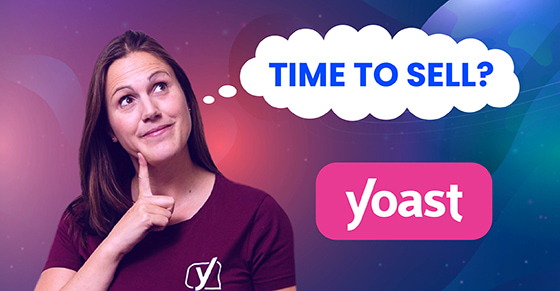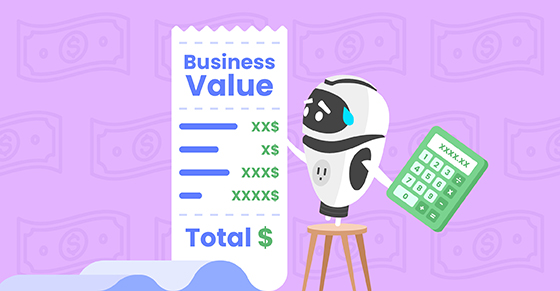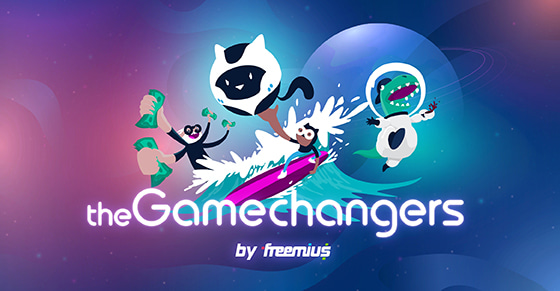|
|
WordPress networking strategies probably don’t immediately come to mind when you think of plugin and theme development. But Extendify’s Chris Lubkert and Artur Grabowski believe that networking is a crucial aspect that’s frequently overlooked by product owners who have plans to sell their businesses down the line.
Artur clarifies: “Too often we see sellers not talking with enough potential buyers and not having two things in place. The first being enough data points to indicate what a full valuation might look like, and the second, not ending up with competing term sheets to be able to negotiate a potential buyer’s term sheet.”
The importance of WordPress networking to build relationships with potential buyers is echoed by Chris. “Ideally, you’re forming these relationships as part of business development to determine if there are ways to work together now, or perhaps in the future.”
In this article compiled from Episode 3 of The Gamechangers video series, Chris and Artur unpack how WordPress founders can build a network of potential buyers early on to enhance the sellability of their product for a future exit.
Chris and Artur On Moving to the WordPress Universe
Between them, Chris and Artur possess over thirty years of experience setting up and overseeing multi-million dollar acquisitions for software giants like Adobe. In 2018, their paths crossed when they joined Automattic’s Corporate Development team, going on to lead investments and acquisitions that included the social networking website Tumblr.
Chris and Artur have serious experience when it comes to growing businesses. It’s also interesting to note that neither of them started in corporate development. Chris holds a biomedical engineering degree from Duke, and Artur spent the first seven years of his career in software engineering before moving to investment banking analysis. With such broad backgrounds and skills that are heavily in demand in the corporate world, it makes one wonder:
What specifically made them gravitate to the WordPress ecosystem?
For Artur, it was simply a matter of personal dynamics. “My wife and I were leaving San Francisco for Ohio. I got a job at Automattic, which is a distributed company with a remote working culture.”
Chris says that his foray into WordPress was similar to Artur’s in that it was his first in-depth experience of the ecosystem.
I think we both had the opportunity to get a good, behind-the-scenes look into Automattic’s business model. But our roles were also focused on identifying opportunities across the WordPress universe, which allowed us to get a broad overview of the ecosystem.
In 2018, their time at Automattic came to an end and they teamed up to start their own WordPress-based company. In a sequence of strategic acquisitions of Gutenberg-based web construction tools, they created Extendify: a company that’s mission is to support developers and users across the WordPress ecosystem by providing responsive block patterns and page templates.

Before we get into their insights on WordPress networking and different buyer priorities, take note that — when it comes to facilitating acquisitions in WordPress — the playing field differs from how things are usually done in private equity firms and large, closed source companies.
Allow me this equestrian analogy to better clarify (it’ll be good, I promise). In the world of race horses, a purebred animal is likely to fetch a handsome price at auction since it will exhibit traits and genes that are known to win competitions. You wouldn’t risk money on a horse with a dubious lineage, would you? WordPress is the same in the sense that buyers prefer products within the ecosystem over external ones. Why? Probably because it’s safer to stick to what you know than cross one breed of horse with another.
Just like racehorse breeders prize pedigrees…
Acquirers in WordPress Favor WordPress Products

During his time at Adobe, Artur found that any software company could be a potential investment or acquisition target, irrespective of whether it was open source or proprietary. But at Automattic, this wasn’t usually the case. ”We did look at companies that were outside of the WordPress ecosystem — like when we acquired Tumblr, for instance — but that was the exception.
When financial investors in WordPress want to set up a strategic acquisition or extend their product sets, they tend to look within WordPress.
Artur goes on to point out that in WordPress, where there are tens of thousands of different plugins, the scale is also different since user bases and revenue for individual products are usually much smaller.
“At Adobe, the world was our oyster in the sense that there were so many different companies that we could potentially work with. However, in WordPress, that universe is much smaller.”
How Has Extendify Navigated Acquisitions in WordPress?
Or, more specifically: What factors trigger an acquisition on Chris and Artur’s part, and how do they approach potential targets?
Chris points out that all of Extendify’s acquisitions in WordPress have been outbound. The process involves networking with specific companies, developing relationships with them, and finding ways to bring them on board and include them in Extendify’s broader mission:
To extend the power of WordPress by creating ultra-responsive block patterns and page templates.
Although they do receive inbound queries — which they take care to evaluate — it’s far rarer for these deals to go through. Essentially, when Extendify has a strategic objective, they will actively look up and pursue acquisition opportunities themselves.
Speaking of differing M&A opportunities — if you’ve read or watched our previous The GameChangers episode with Marieke van de Rakt, you’ll recall that we discussed how interested parties had varying proposals for what should be done with Yoast.
Why is this, though?
The Two Types of Acquirers: Financial and Strategic
According to Artur, different buyers will make different bids with different intentions. This will impact the outcome of the deal as well as how you should position your WordPress networking strategy.
“If you have a financial acquirer, they look at your business as generating $X amount of cash flow right now. Quite simply, what they are asking themselves is, if they acquire you for a certain amount, how long would it take them to make back their investment?
While financial acquirers are definitely considering potential revenue, growth opportunities, and even some operational enhancements to optimize cash flow, what they’re really wondering about is the payback period and how the business will grow in that time.
But that’s only half the reason why this type of buyer is interested in your product or service. After a financial acquirer has managed to establish ROI metrics, they move on to the real question: How much can they potentially sell the business for once they’ve made their money back?
In this case, the real valuation of your business is defined more strictly by weighing up standard financial metrics based on comparable sales prices of similar companies. Researching figures that were netted by founders — and acquirers — of businesses similar to yours can help you understand your worth to a financial buyer in purely monetary terms, both now and post-sale.
However, if an acquirer is interested in you for strategic reasons, it’s probably because your product has the potential to accelerate their roadmap by N years. Or, it might be because you have a unique team unlike any other in the space. “This allows you to really separate your evaluation from the pure fundamentals and guide the acquirer to appraise your business based on strategic value,” Artur insists.
Should You Target a Financial or Strategic Buyer?
According to Artur, it all depends on the nature of your product or business.
If what you offer is more generic, you might not be number one in your field, but you might have, say, 80% EBITDA (Earnings Before Interest, Taxes, Depreciation, and Amortization) margins. In this case, a financial acquirer will probably lean heavily in your favor because there is some metric of financial performance.
A strategic acquirer will also look at financial metrics, but what they are really doing is asking themselves whether the acquisition makes sense for their mission and vision. “Financials will still be the starting point for an acquisition, but they will mainly serve to inform strategic valuation,” says Artur.
A strategic buyer is asking themselves if buying the product makes sense — if it does, they will decide what they are willing to pay for it.
The First Step of the WordPress Acquisition Process for Sellers
You’ve got an idea of what your WordPress business is worth, you’re confident that what you’re offering is totally awesome and unique, and you believe that any buyer would be lucky to have your product.
Now, how do you get the ball rolling to begin your WordPress networking plan?
The starting point is figuring out what you’re trying to optimize for, and Chris and Artur advise structuring your WordPress business exit to accommodate your specific needs as a founder.
As is true for all business exits — including WordPress exits — it should also be based on what you’re looking to gain as a seller — whether it’s max-value, finding a new home for your team/users, or staying on board and leveraging your relationship with the buyer to elevate your company.
As Chris and Artur pointed out earlier, if you’re specifically looking to sell — whether now or in a few years — you need to reach out to potential buyers and start forming relationships with them.
Chris muses, “Sellers often look at companies from the outside and think, We’re not a fit for that company because our mission is not strategically aligned with theirs, or, I don’t think we’ll match culturally. But most of the time, the seller has literally never spoken to that company! And you never know until you talk to them, right?”
So, once you’ve identified your priorities as a seller and understand what kind of buyers you’d like to approach, how many should you be reaching out to? While there isn’t an exact answer, Chris’s experience has shown him that it’s usually five or more. “You want to have a couple of different offers,” he advises.
To recap, once you have:
- Figured out your needs as a seller;
- Determined whether your sales objectives are better served with a financial or strategic buyer and structured your exit accordingly, and;
- Gained a solid understanding of what you should be optimizing for to get the best outcome, it’s time to learn the subtle art of…
WordPress Networking: Identifying and Connecting With Potential Acquirers
It’s important to be selective about who you reach out to, especially when negotiating a merger with a bigger company. Sellers will be rightly cautious about the culture their business could potentially join. But oftentimes, this WordPress networking wariness leads to preconceived notions that put sellers off from even reaching out for initial conversations.
The fact is, you’re never going to know if your suspicions are correct until you initiate the conversation and attempt to build a relationship through networking. Cast your line into a few different ponds. How else are you going to catch the big one?
Artur thinks back on his experience at Adobe. “It’s a really cool company and has been a major player in the creative arena for a long time. But during my time, we were also acquiring companies that weren’t making creative tools per se. Some sellers, when they started talking to us, had already been in conversations with other companies like Google or Facebook and had their reservations about Adobe. But then they would pay us a visit; they would come to see our physical space — actually see the culture — and see what the people are like.
“Often, this dramatically changed their mindset. But they would have never known that if they didn’t start that conversation with us.”
How and When Should a Seller Reach Out to Potential Buyers?
Or, what is the first step in kickstarting the process of your WordPress networking strategy? Chris says:
Pick up the phone. It’s really strange that more people don’t do this. When you message someone on Slack who you’ve never spoken with to ask if they’d be interested in buying your business, it’s not only impersonal, but it makes things difficult on both sides.

From a seller’s perspective, you’re not going to be able to gauge whether the buyer is a good fit for you. From a buyer’s point of view, if a seller reaches out on Slack with the explicit intent of selling, they’ve been unduly pressured to decide if they’re interested in buying or not.
Usually, the time frame buyers give themselves for both the valuation and the acquisition decision amounts to a few weeks. Reaching out on Slack informally does not give buyers enough time to make an informed decision. “They’re probably thinking, If we had known this business or this company for longer, we would potentially be in a very different situation,” adds Chris.
Rather than initiating discussions with people you barely know and risking an outreach being awkward, the more effective route would be to establish those relationships early on, while you’re building your business.
WordPress Networking While Building Your Business — Where to Start?
“When we as a potential acquirer reach out to another business — be it to discuss a potential acquisition now or just to build relationships — it’s all the same, really,” says Chris.
Reaching out should be a friendly ‘hello’ from one business to another, not a strategic move for a potential sale. Ask them if they’re interested in chatting because you’d like to get to know them better. Whether it leads somewhere is inconsequential, because you’re creating opportunities to work together in the future.
Word travels fast — you never know whether someone in their network might be looking to buy a business or product like yours.
How Is Outreach Different in WordPress Versus Other Markets?
“My experience has been that the WordPress community is very open, welcoming, and helpful, even when competitive dynamics are at play,” says Chris.
If you’re thinking about potentially selling your business — whether now or in a few years — just ping a few folks. Start chatting and sharing about your business, learn about their priorities and initiatives, and try to build that network. When the time comes for you to reach out and have a more explicit conversation, you will already have established a trusting relationship.
But how do you facilitate an outreach, especially if you’re a shy developer who is intimidated by the idea of WordPress networking?

Artur says that it’s about finding common ground.
For smaller product owners, it’s literally about reaching out to learn about one another’s products or to ask for feedback. But if you’re talking to a large company, I think that’s where you really want to come prepared with a game plan. Larger organizations will have a corporate development team that manages acquisitions and, in some cases, also partnerships.
If you’re looking to sell in a year or more, it’s a clever move to form a relationship with the product team at the company you have in mind. This helps you understand exactly what the company does and, when it comes time to sell, you’ll know how to position your product within that infrastructure. Ideally, it should be valued based on a strategic fit that can help the company address a priority area in its operations. “In this case, they will also be willing to pay more,” says Artur.
Getting to know the product team can also help you maximize financial value when the time comes to sell. Artur points out that if you can find a champion, they will likely mention your name and sing your praises to the corporate development team.
While WordPress networking has its merits, it’s a time-consuming endeavor. When you decide you’re ready to sell, it doesn’t mean you can put all operations on pause until you find a buyer. Someone (probably you) needs to hold the fort.
This begs the question: Is it worth spending money to make money from the sale? Wouldn’t it be better to get a matchmaker to do your bidding for you? Or, in this case:
Is Hiring a Broker the Smarter Option for WordPress Networking?
Developers know better than anyone that coding, maintenance, and support demand long hours. This places time constraints on other important tasks like marketing, finances, or sales. To solve the problem, many solopreneurs in our space outsource these obligations to companies like Freemius.
In the same vein, wouldn’t it be more practical for solopreneurs to use brokers to facilitate WordPress business exit deals for them?
It depends on where your priorities lie. Chris believes that brokers can be helpful if you’re looking for a financial buyer. “Most of them have a huge Rolodex and email list of potential buyers that they can reach out to. And greater exposure to a larger number of potential acquirers can be helpful.”
On the other hand, Artur points out that a broker will likely create a standard sales pitch based on the information you provide and send this out to their entire contact list as a generic email. Since a personal email has more chance of being opened and read than an obvious copy/paste effort, you could end up losing potential buyers.
Brokers make even less sense if you’re after a strategic buyer and have other objectives that aren’t purely financial. Maybe you are still invested in your product and would like to join forces via a merger? In this case, commit to reaching out to people and actually getting to know them to determine if their objectives align with yours.
Grab a free copy of our Cheat Sheet for
Selling Plugins and Themes
A growth roadmap with concise, actionable tips for every milestone of WordPress product development.

Understanding Your Buyer’s Strategic Priorities
There’s a fine art to presenting your product to a potential buyer and it requires that you understand their unique needs.
Chris cites an example.
Let’s say you’re an eCommerce business and you’re considering a sale to a potential host. And you know that host doesn’t actually want to own a bunch of disparate WooCommerce extensions. What they really want is to build out a better eCommerce experience for their user base.
In this scenario, what you’re trying to sell isn’t your extension. Instead, you want to show the host that your team and experience can greatly enhance their product roadmap. “If you’re talking to someone who owns a suite of different products and they’re interested in cross-promoting relevant solutions, then you should be talking about how relevant your user base is.”
Chris believes that being direct in the early stages of your WordPress networking can also be useful to navigate the sale. “If you’re speaking to the leader of a particular division, you should ask them what their focus is over the next year. This will help you to figure out why you’re discussing a potential acquisition with them in the first place. Oftentimes, it will be hard to understand why they’re interested in your product. Is it because of your cash flow, the size of your user base, or because of the expertise in your team?”
There will also be cases where getting maximum monetary value is not your main priority. Sometimes, your reasons for selecting an acquirer will be complex, which is why getting to know them is critical to ensuring a proper fit.
“It should be a two-way evaluation, right? Especially if you and/or the team are staying on,” Chris observes. Just as the buyer is evaluating if your company is a good fit for them, you should envision what a future could look like with their business.
Make sure there’s an alignment and a good fit so that you don’t have regrets after closing the deal.
Buyers or Sellers: Who Stands to Benefit Most From the Recent Mergers and Acquisitions Trend?
“I think that the environment is favoring sellers the most right now,” says Chris. “There’s still a fair amount of interest within different niches in the WordPress ecosystem specifically. It’s a hot market. Especially in areas like eCommerce that have seen a lot of growth over the past year and a half.”
Chris continues, explaining that while he and Artur were working at Automattic, there seemed to be far fewer potential acquirers in the market, which made their jobs easier. “Since we left, a lot of folks have reached out as they consider the future of their businesses. And so we’ve supported them from the other side by giving guidance, teaching them the things that we’ve learned from our experience, and showing them that sellers have more choices nowadays than they did before.”
What Does the Future Hold for the WordPress Acquisitions Landscape?
We asked Chris where he thinks WordPress is headed from here, given his vast experience in various markets. He makes a very interesting point.
“When WordPress companies look at selling their businesses, they almost always sell to other WordPress companies, right?” He points out that it’s interesting that companies at the forefront of acquisitions haven’t branched out and looked at non-WordPress products.
I don’t know what’s driving that. But I can see an opportunity, you know, to think more broadly beyond the WordPress ecosystem, specifically on where there might be a potential fit.
‘WordPress networking strategies’ probably isn’t on the to-do list for most product makers. And yet, in the wake of COVID-19 and at a time when the WordPress market is maturing and sellers have an opportunity to cash in, facilitating connections with others — both inside and outside of WordPress — is more important than ever.
Maybe the initial stages of selling your WordPress business are a lot like taking someone for a coffee — if you have their number, pick up the phone and call them. You can take things from there 🙂
If you enjoyed Chris and Artur’s insights, be sure to check out our recent The Gamechangers articles about how Marieke van de Rakt navigated the Yoast acquisition, and what Syed Balkhi thinks you should know to chart a lucrative WordPress business exit.








